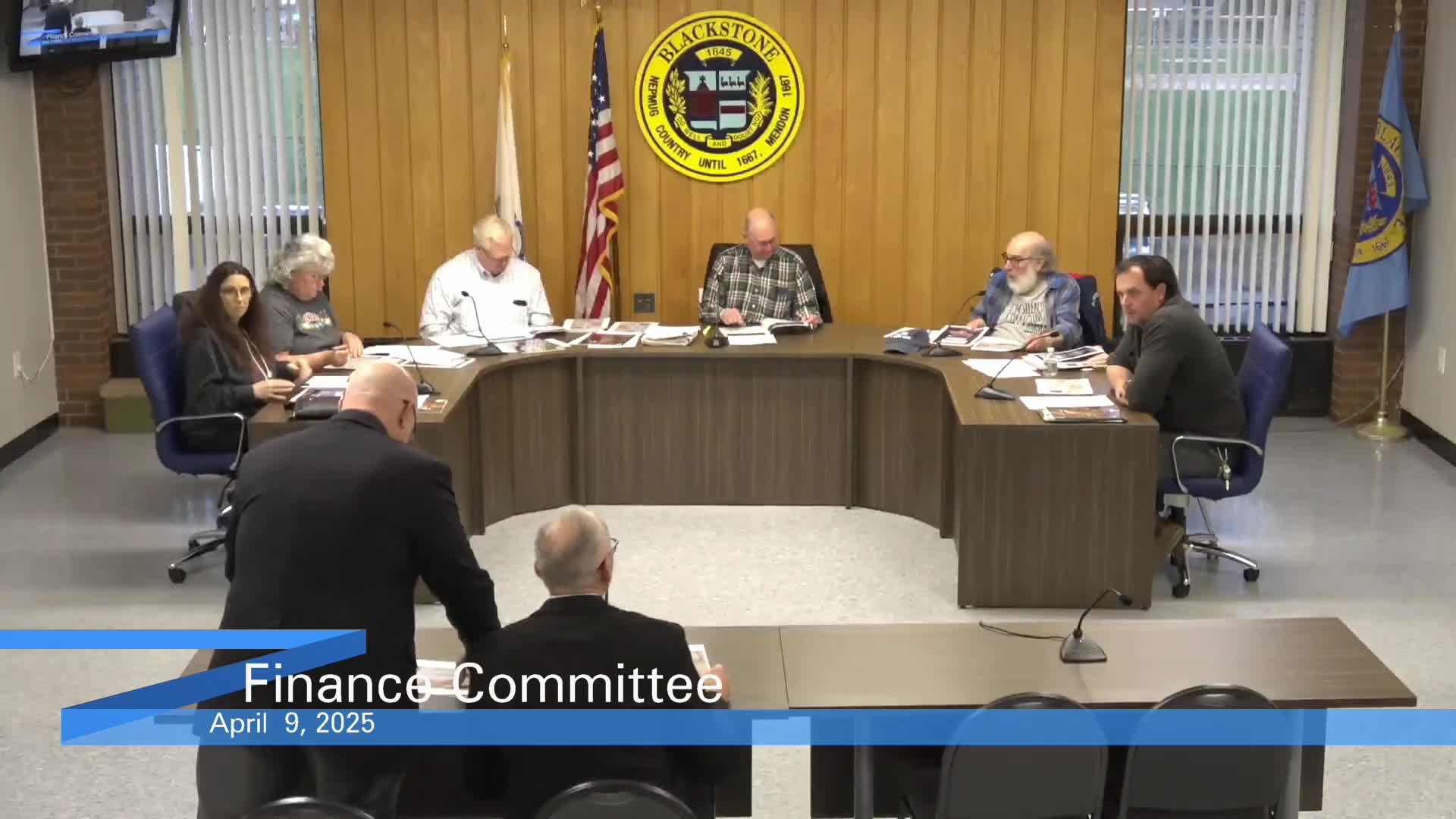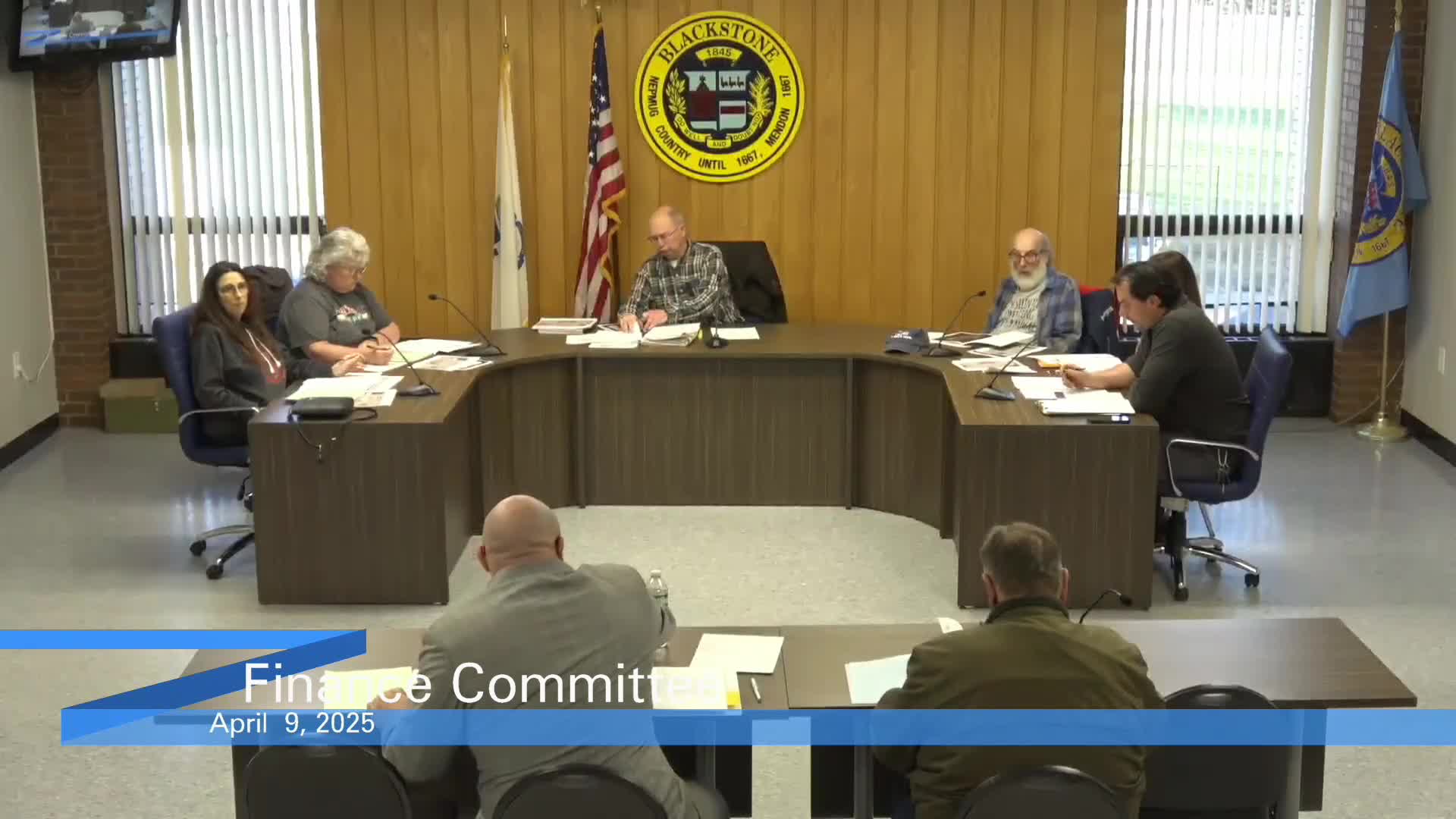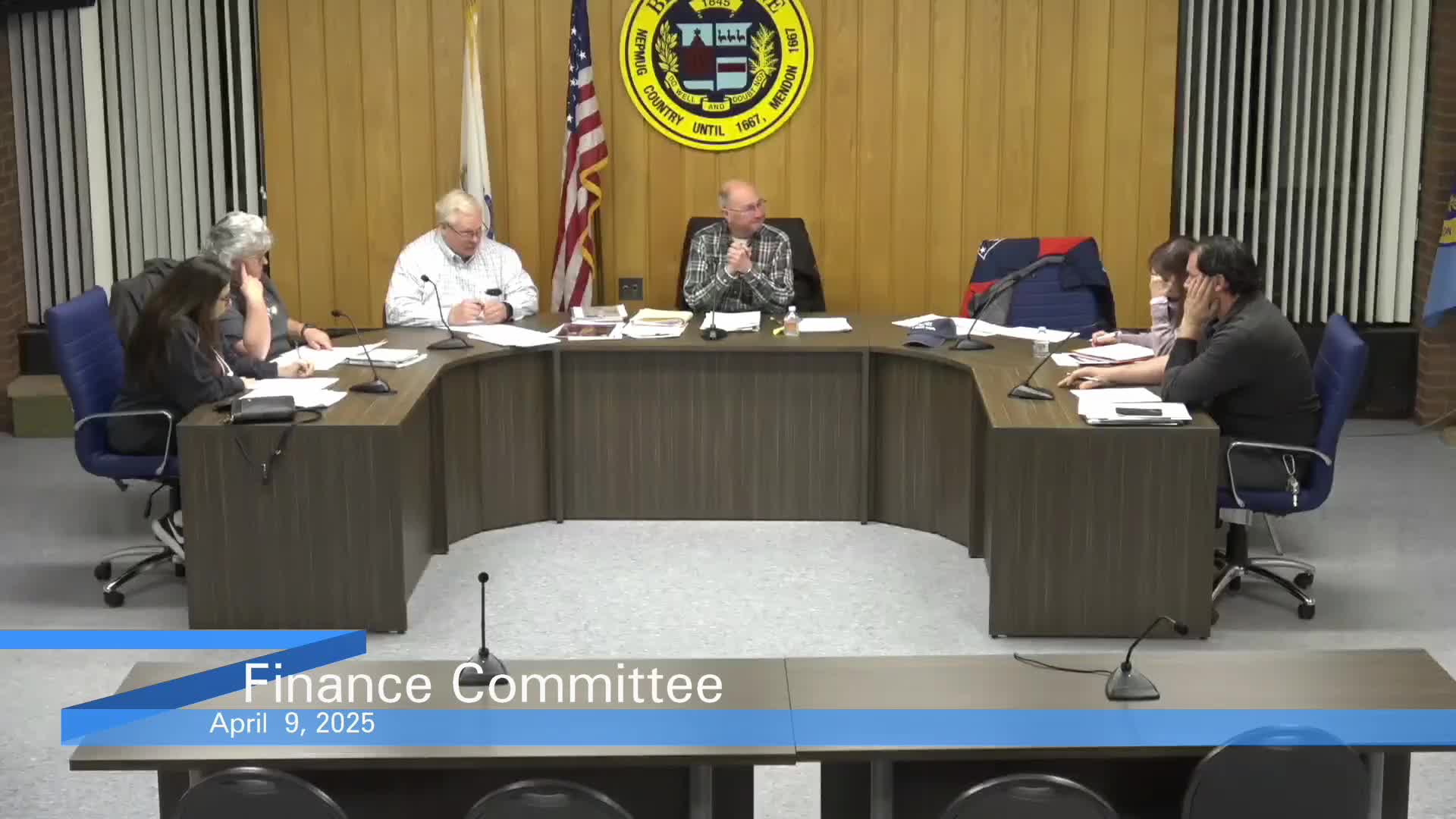Article not found
This article is no longer available. But don't worry—we've gathered other articles that discuss the same topic.

Blackstone-Millville regional schools present FY26 certified budget; district aims to reduce town increases with offsets

Valley Tech presents FY26 budget to Blackstone finance committee; emphasizes grants, MSBA roof process

Finance committee approves January meeting minutes, pays transcription invoice and schedules follow-up budget session

